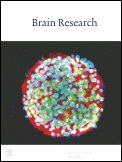
Neuroscience is the scientific study of the nervous system, its functions and disorders. It is a multidisciplinary science that combines physiology, anatomy, molecular biology, developmental biology, cytology, psychology, physics, computer science, chemistry, medicine, statistics, and mathematical modeling to understand the fundamental and emergent properties of neurons, glia and neural circuits. The understanding of the biological basis of learning, memory, behavior, perception, and consciousness has been described by Eric Kandel as the "epic challenge" of the biological sciences.
Neuroeconomics is an interdisciplinary field that seeks to explain human decision-making, the ability to process multiple alternatives and to follow through on a plan of action. It studies how economic behavior can shape our understanding of the brain, and how neuroscientific discoveries can guide models of economics.

Behavioral neuroscience, also known as biological psychology, biopsychology, or psychobiology, is the application of the principles of biology to the study of physiological, genetic, and developmental mechanisms of behavior in humans and other animals.
Neuromarketing is a commercial marketing communication field that applies neuropsychology to market research, studying consumers' sensorimotor, cognitive, and affective responses to marketing stimuli. The potential benefits to marketers include more efficient and effective marketing campaigns and strategies, fewer product and campaign failures, and ultimately the manipulation of the real needs and wants of people to suit the needs and wants of marketing interests.

Neurolaw is a field of interdisciplinary study that explores the effects of discoveries in neuroscience on legal rules and standards. Drawing from neuroscience, philosophy, social psychology, cognitive neuroscience, and criminology, neurolaw practitioners seek to address not only the descriptive and predictive issues of how neuroscience is and will be used in the legal system, but also the normative issues of how neuroscience should and should not be used.

Bruce Sherman McEwen was an American neuroendocrinologist and head of the Harold and Margaret Milliken Hatch Laboratory of Neuroendocrinology at Rockefeller University. He was known for his work on the effects of environmental and psychological stress, having coined the term allostatic load.
Georg F. Striedter is an American scientist and professor in the Department of Neurobiology and Behavior at the University of California, Irvine. He is the author of more than 30 papers in evolutionary neuroscience and the author of the book Principles of Brain Evolution. He is also the editor-in-chief of Brain, Behavior and Evolution. Striedter obtained his PhD in neuroscience from the University of California, San Diego, under the supervision of Glenn Northcutt in 1990. He then pursued postdoctoral research at Caltech with Mark Konishi.
Genes, Brain and Behavior is a peer-reviewed scientific journal covering research in the fields of behavioral, neural, and psychiatric genetics. It is published by Wiley-Blackwell on behalf of the International Behavioural and Neural Genetics Society. The journal was established in 2002 as a quarterly and is currently published monthly. G2B is a hybrid open access journal, but two years after publication all content is available for free online.

The International Behavioral Neuroscience Society (IBNS), was founded in 1992. The goal of the IBNS is to "encourage research and education in the field of behavioral neuroscience". Its current president is Mikhail Pletnikov. Brain Research Bulletin, Neuroscience and Biobehavioral Reviews, and Physiology and Behavior are official journals of the IBNS.
Nervous system diseases, also known as nervous system or neurological disorders, refers to a small class of medical conditions affecting the nervous system. This category encompasses over 600 different conditions, including genetic disorders, infections, cancer, seizure disorders, conditions with a cardiovascular origin, congenital and developmental disorders, and degenerative disorders.
Cultural neuroscience is a field of research that focuses on the interrelation between a human's cultural environment and neurobiological systems. The field particularly incorporates ideas and perspectives from related domains like anthropology, psychology, and cognitive neuroscience to study sociocultural influences on human behaviors. Such impacts on behavior are often measured using various neuroimaging methods, through which cross-cultural variability in neural activity can be examined.

Brain Research is a peer-reviewed scientific journal focusing on several aspects of neuroscience. It publishes research reports and "minireviews". The editor-in-chief is Matthew J. LaVoie.

Wim E. Crusio is a Dutch behavioral neurogeneticist and a directeur de recherche with the French National Centre for Scientific Research in Talence, France.

Consciousness after death is a common theme in society and culture, and the belief in some form of life after death is a feature of many religions. However, scientific research has established that the physiological functioning of the brain, the cessation of which defines brain death, is closely connected to mental states.

Parental experience, as well as changing hormone levels during pregnancy and postpartum, cause changes in the parental brain. Displaying maternal sensitivity towards infant cues, processing those cues and being motivated to engage socially with her infant and attend to the infant's needs in any context could be described as mothering behavior and is regulated by many systems in the maternal brain. Research has shown that hormones such as oxytocin, prolactin, estradiol and progesterone are essential for the onset and the maintenance of maternal behavior in rats, and other mammals as well. Mothering behavior has also been classified within the basic drives.
Behavioral epigenetics is the field of study examining the role of epigenetics in shaping animal and human behavior. It seeks to explain how nurture shapes nature, where nature refers to biological heredity and nurture refers to virtually everything that occurs during the life-span. Behavioral epigenetics attempts to provide a framework for understanding how the expression of genes is influenced by experiences and the environment to produce individual differences in behaviour, cognition, personality, and mental health.
Founded in 1961, the American College of Neuropsychopharmacology (ACNP) is a professional organization of leading brain and behavior scientists. The principal functions of the College are research and education. Their goals in research are to offer investigators an opportunity for cross-disciplinary communication and to promote the application of various scientific disciplines to the study of the brain's effect on behavior, with a focus on mental illness of all forms. Their educational goals are to encourage young scientists to enter research careers in neuropsychopharmacology and to develop and provide accurate information about behavioral disorders and their pharmacological treatment.

Gina Rippon is a British neurobiologist and feminist. She is a professor emeritus of cognitive neuroimaging at the Aston Brain Centre, Aston University, Birmingham. Rippon has also sat on the editorial board of the International Journal of Psychophysiology. In 2019, Rippon published her book, Gendered Brain: The New Neuroscience that Shatters the Myth of the Female Brain, which investigates the role of life experiences and biology in brain development.